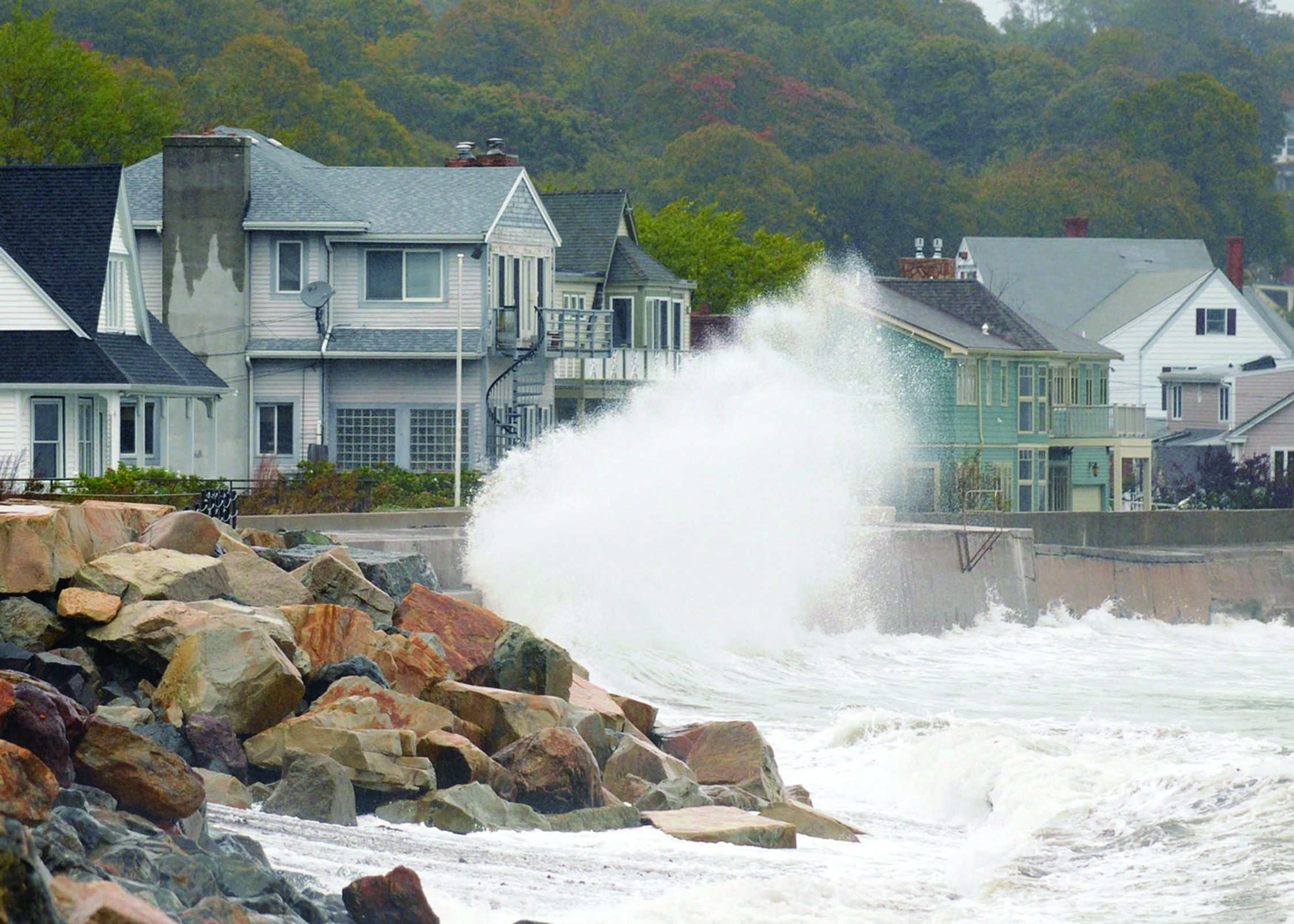NAHANT — The Planning Board has recommended a zoning bylaw that would change the permitting process for projects within the town’s wetlands, despite mixed feelings about how the amendment has been written.
The recommendation for Town Meeting to support the article passed unanimously, but vice-chairman Cal Hastings said he wasn’t happy about vouching for something that he believes is missing several elements. The panel was not able to amend the language, but could have referred it back to the Board of Selectmen, where it originated, for the changes to be made, he said.
“Do you think it’s fair to ask this board to recommend this?” Hastings asked selectman Enzo Barile, who answered questions from the audience about the proposal.
According to a document outlining the proposed zoning bylaw amendments, the purpose of the zoning bylaw is “to protect the wetlands, water resources, and adjoining land areas in Nahant by controlling activities deemed by the Board of Appeals likely to have a significant or cumulative effect on resource area values.”
The amendments, which will be presented to Town Meeting, would require permits to remove, fill, dredge, build on, degrade, discharge into and otherwise alter any freshwater or coastal wetlands.
The bylaw would also cover marshes, wet meadows, bogs, swamps, vernal pools, banks, reservoirs, lakes, ponds, quarry pits, rivers, streams, creeks, beaches, dunes, estuaries, the ocean, land under water bodies, land subject to flooding by groundwater or surface water, land subject to tidal action, and all land within 100 feet of any of these features.
Barile, who has led efforts to remap the town’s flood plains with the Federal Emergency Management Agency, said at least 40 percent of the town is considered conservation land.
Residents who live within the zoning area would be required to apply for permits with the Zoning Board of Appeals and the Conservation Commission before completing projects.
“It’s duplicative in my opinion,” said Conservation Commission member Kristin Kent. “Right now, we can’t get people to file for permits. Adding a second filing requirement isn’t going to help. I do support us doing a wetlands bylaw, but a non-zoning bylaw.”
If instead it was a non-zoning bylaw, only one body could be making a decision, rather than two, she said.
“It complicates it,” said Kent. “From a conservation perspective, it’s not the way to do it.”
Attorney Stephen Smith, who represents many property owners in Nahant, including Northeastern, which is proposing a controversial expansion project, had concerns about how the bylaw would be enforced.
Smith ticked off a laundry list of roads that would be affected by the proposed zoning changes and questioned whether the residents on each had been alerted to what they would be required to do to cut down a tree in their yard, should the article pass at Town Meeting.
He pointed out that the wait to go before one board could be 35 days, while it could take 90 to 100 to get in front of the other.
Barile argued that residents should already be applying for permits to take down trees and clear brush in wetland areas because it leaves the coast vulnerable to erosion.
“40 Steps (Beach) is an example,” he said. “If they start clearing trees up there, we’re really going to lose the sea wall. We need to tighten up everything we do in this town.”
While the town already follows the Wetlands Protection Act, most cities and towns have additional wetlands protections in their bylaws, said Barile.
“We don’t and we’re surrounded by water,” he said.
The focus should be on the bigger picture, rather than when someone can complete work in their backyard, said Marilyn Goodrich, a Summer Street resident.
“I watched Willow Street turn into a river with a current during the first storm in March,” said Goodrich. “Thinking ‘this is my house and my yard and this is what I want to do’ needs to be reevaluated.”
It won’t matter what residents want to do in their backyards if their properties are washed away, she said.
The article will be presented at the Annual Town Meeting on April 28, and can be amended at that time.

